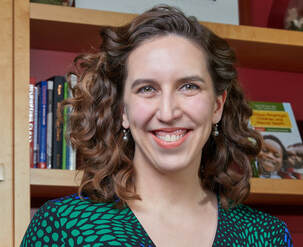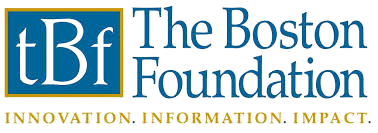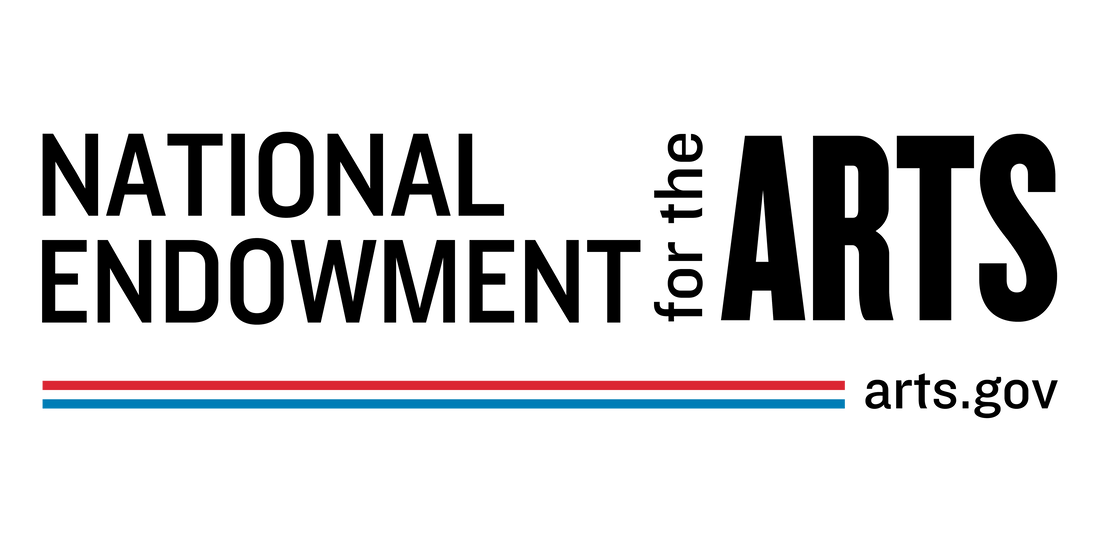|
Welcome to the first BIBA Blog that highlights and reviews operas by Black composers, which are full of such richness and breadth! These posts examine the many ways that composers from the African diaspora have used music and drama to tell urgent and necessary stories of love, history, family, and social justice, as well as operas that celebrate or comment upon various aspects of life, the past, and more, with tones ranging from serious to light . In an art form where racism is both deeply and historically ingrained, blackface and yellowface somehow remain hotly debated, and contemporary artists of color are reclaiming the narrative online, the beauty and power of operas by Black composers are part of a necessary operatic revolution.
WE SHALL NOT BE MOVED, by Daniel Bernard Roumain (DBR) We Shall Not Be Moved came together through the collaboration of three powerhouse artists -- composer Daniel Bernard Roumain, librettist Marc Bamuthi Joseph, and director/choreographer/dramaturg Bill T. Jones, commissioned by Opera Philadelphia. Since we want to save space to talk about the opera itself, these bios are brief, but we encourage you to learn more about each of them -- additional links are included below! The Composer: Daniel Bernard Roumain Daniel Bernard Roumain, often referred to by his initials DBR, is a composer, violinist, and educator, whose artistic works defy categorization. DBR is well-known for blending classical, hip hop, R&B, gospel, and electronic music styles in his compositions, as well as for his wide-ranging collaborations with artists such as Philip Glass, DJ Spooky, and Lady Gaga. His Haitian-American heritage and identity as a Black man also strongly influence his artistic work, themes, and aesthetic. DBR is currently on the faculty of Arizona State University and serves in a number of leadership positions in the classical music field, including board positions with the League of American Orchestras, Association of Performing Arts Presenters and Creative Capital, and the advisory committee of the Sphinx Organization. The Librettist: Marc Bamuthi Joseph A spoken word poet, dancer, director, playwright, and educator, Marc Bamuthi Joseph brings issues of social justice and community building to the forefront through his artistic output, as well as his administrative and consultancy work around the country. Born in New York City to immigrants from Haiti, Mr. Joseph made his Broadway debut at the age of 10, and has become a transformative contemporary leader in the arts, education, social impact, and creative expression fields. He is a 2017 TED Global Fellow, an inaugural recipient of the Guggenheim Social Practice initiative, and an honoree of the United States Artists Rockefeller Fellowship, and currently serves as Vice President and Artistic Director of Social Impact at the John F. Kennedy Center for the Performing Arts. He has collaborated with DBR three times for the projects Blackbird, Fly (2016), We Shall Not Be Moved (2017), and The Just and the Blind (2019). The Director: Bill T. Jones Bill T. Jones is a leading contemporary American choreographer and director whose career in theater, dance, opera and more spans decades. One of the most lauded artists of our time, Mr. Jones’s many honors and awards include the National Medal of Arts, a Kennedy Center Honor, Tony Awards, the Dorothy & Lillian Gish Prize, and a MacArthur “Genius” Grant Fellowship. He is a co-founder of the Bill T. Jones/Arnie Zane Dance Company, and the Artistic Director of New York Live Arts. In addition to the dozens of influential works that he has choreographed and co-choreographed for his own dance company and many others, Mr. Jones is also known for his work on the musicals The Seven, Spring Awakening, and Fela!. History & Context: The MOVE organization It’s difficult to fully appreciate We Shall Not Be Moved without at least a basic understanding of the bombing of the MOVE organization -- and hopefully, you’ll be moved to further deepen your understanding of the events, people, and structural racism that led the Philadelphia police to bomb its own citizens in 1985. MOVE is a Black liberation group (still in existence today) that was founded in 1972 by John Africa, born Vincent Leaphart, a West Philadelphia native and Korean War veteran. Its members lived in communal settings and embraced anti-government, anti-technology, Black power, and animal rights ideals. They spoke out about police brutality and environmentalism, fusing influences from the Black Panther Party and 1960s hippie culture. MOVE staged public demonstrations at zoos, stores, and rallies, and while many supported their principles, their methods and lifestyle were decried by others, including some fellow Black residents in Philadelphia. In 1978, a tense confrontation with police following an eviction order resulted in the death of one police officer and several other injuries. Nine members of MOVE were convicted and given life sentences. The organization relocated in 1981 to 6221 Osage Avenue, in a middle-class, largely African-American neighborhood. Neighbors made public complaints for years about trash around MOVE’s row house and loud political messages delivered via bullhorn. Finally, Mayor Wilson Goode, the city’s first African-American mayor, gave the order to empty the house and arrest four of the occupants on various weapons, parole, and terrorism charges. Nearby residents were evacuated and on the morning of Monday, May 13, 1985, police moved in on the MOVE home, where eight adults and five children were housed. The standoff between the police and MOVE escalated throughout the day. Water and electricity were shut off to the building. There was an armed standoff, then a shootout. That evening, the city of Philadelphia dropped a satchel bomb of Tovex and C-4 explosives on the home, killing eleven people, including five children as well as John Africa, MOVE’s founder. A fire began to spread to adjacent houses. Police Commissioner Gregore Sambor, who had given the bombing order, held back the fire department, and by the end of the night, 61 homes had burned to the ground, leaving 250 residents homeless. The staggering racism, distrust and cavalier police brutality that led to the bombing of MOVE reverberated throughout the city for decades to come. No one was ever charged or held publicly accountable for the attack, and the city of Philadelphia has still not formally apologized, despite recent activism to increase public awareness and to push for restorative justice. The destroyed homes were shoddily rebuilt, and residents moved back to the neighborhood in 1986. But by the early 2000s, the city bought out most of the crumbling buildings and left them vacant, ghostly reminders of a violent past and the unjust present. This is where we find ourselves in the opera We Shall Not Be Moved. We Shall Not Be Moved: The Basic Plot Please refer to Opera Philadelphia’s fantastic full synopsis for plot details -- this is just a taste to help orient you for our discussion! On the streets of Philadelphia, five teenagers -- John Henry, John Blue, John Little, John Mack and Un/Sung -- are on the run after a violent altercation. This chosen family finds refuge in an abandoned building, which is the home of the MOVE organization and site of the 1985 bombing. They begin receiving messages from the spirits of MOVE, referred to as the OGs, who comfort and sustain them. Glenda, a police officer who was born in North Philly and now patrols West Philly, finds them and suspects them of truancy and loitering. She moves to pick them up, but their confrontation explodes and Glenda shoots John Henry, wounding him. The other teens manage to take her gun, holding her hostage. As John Henry’s condition worsens, the teens try to determine their next move. Finally, they tell Glenda the full story of why they are on the run, hoping to bargain for her silence with their own. Glenda, however, realizes that the other teenager whom John Blue shot and killed during the earlier fight was her brother, Manny, and refuses to comply. Increasingly desperate, the teens debate further violence. Un/Sung steps up and offers to take on the task, ordering the others to leave. Un/Sung takes possession of the gun and faces off with Glenda a final time, their confrontation escalating in a blackout. When the lights come back, Glenda recounts her simplified version of the events that ensued, though what is seen onstage is more complex. Opera Philadelphia: Digital Festival O performance Available online through August 31, 2020 There may not be an opera more urgent for our country’s current movement against racism, police brutality, and white supremacy than We Shall Not Be Moved. Inspired in equal parts by the historical reality of state violence against Black bodies and by the present lived experience of Philly youth confronting inequity and injustice present in their own lives, this opera is a deeply emotional story that challenges us, as viewers, to imagine a place where, in the words of Un/Sung, “More than one kind of thing can be true. That’s America too.” All of the characters in We Shall Not Be Moved are complex and sympathetic figures in different ways. Un/Sung, who expresses herself primarily in spoken word, often serves as the narrator of the opera; her brilliance and fierce loyalty to her brothers shines through her words, wise beyond her years, frustrated and stymied by failing schools, poverty, and a world that sees her as worthless. John Mack is driven by his faith and goodness, John Little is a white boy who identifies with his Black chosen family, John Henry displays both toughness and vulnerability even as he lies bleeding, and John Blue is a transgender boy (voiced by a countertenor, though it would be fantastic to see and hear a trans singer in that role -- casting directors, please take note!), the “brother most likely to steal your things and cut you for good measure,” according to the Opera Phil student study guide. In the following clip, Un/Sung talks about the deep bond of this chosen family, then all of them share their stories and histories, displaying the cast’s incredible skills spanning spoken word, gospel, R&B, and of course, classical music styles. Watch through 16:55.
Glenda, likewise, is a layered portrait of a Latina who seems to identify more with her fellow brothers in blue than with her estranged family. She believes in the work that she does, its value and dignity, and is a sympathetic person who also faced difficult circumstances, yet managed to build herself a successful life -- but at what cost? Watch from 18:25 to 21:50 to learn more about Glenda, the “ghetto flower picked and planted by the law.”
The opera is moving and provocative throughout, but the final confrontation between Un/Sung and Glenda is truly where these themes, questions, challenges and protests come together in an explosive climax. These two women -- although one is still a teenager, not yet fully grown -- are embodiments of divergent choices in a system that is stacked against them. One chose the path of conformity by joining the police force, “a well-funded gang” as Un/Sung angrily says, believing that the system of law and order would give her a foothold to a better life. The other is trying to create a life for herself and her brothers outside of this paradigm, a "Harriet Tubman"-like figure seeking an Underground Railroad that will lead to a freedom that they still can’t quite fully imagine. Critiques of police brutality, bias, the meaning of freedom -- it’s all here in We Shall Not Be Moved, echoing our national conversation and adding to the growing crescendo of protests and activism, thanks to the dedication and work of Black Lives Matter and anti-racist allies.
I want to leave you with this incredible scene from Act II, as John Blue, John Little and John Mack share the self-affirmation that they have learned from their spiritual guides, the OGs. Joyous, lyrical, insistent and transcendent, this is a spiritual for our time: “Love is the only word sweeter than Black.”
Additional readings and references:

Lacey Upton is an educator who specializes in the arts, out-of-school time settings, and community engagement. She began her career in opera at the Metropolitan Opera Guild in NYC and spent five years at Boston Lyric Opera as the Director of Community Engagement. She recently earned her Ed.M. from the Harvard Graduate School of Education and currently works in youth development with middle and high school students.
Photo credit: Esso Studios
1 Comment
Hello BIBA fans! This is part two of a series of posts supporting Black businesses. As stated in the last post, numerous factors have contributed to gross inequality in wealth distribution to BIPOC US citizens. From the 2017 Boston Globe Spotlight Series on race, the reality that “the median net worth for non-immigrant Black households in the Greater Boston region is $8” shocked all of its readers. Are you in Boston? A frequent traveler to or visitor of Boston? Wanting to check out some of Boston’s cultural offerings? Then check out some of the fantastic organizations doing incredible work in the Boston area, and support them with a donation, a share, social media engagement, attendance at one of their events, and in any other way you can. This week's post focuses on musicians and musical organizations (other than Castle of our Skins, of course)!
Musicians and Music Organizations Community Music Center of Boston: founded in 1910, CMCB serves over 5,500 individuals every week, and works with nearly 35 Boston public schools, community centers, nursing homes, and hospitals. Their students range from five months old to 88 years old, and their current executive director is acclaimed bassoonist Lecolion Washington. Learn more HERE and donate HERE! KickBack Boston: this annual get-together-and-vibe-to-amazing-music party celebrated its 4 year anniversary in December last year. No updates about this year's event yet, but you can check out their website HERE and follow them on Instagram and Facebook! Project STEP: this program opened its doors in 1982. While it is not Black-owned, its mission is to train young musicians of color, and eventually prepare them for professional jobs as musicians. It boasts that every Project STEP graduate - 100% - has gone on to a college or a conservatory. They have a campaign now which you can donate to HERE, and visit their website HERE! BAMS Fest: Boston Art & Music Soul (BAMS) Fest breaks down racial barriers to arts, music, and culture through signature events, strategic partnerships, and an annual festival. It centers Afro-diasporic voices perspectives, and artistry. Learn more HERE and donate HERE! New England Conservatory's Black Student Union: the NEC BSU is a place where BILPOC musicians can network and act within a safe space. Follow on Facebook and Instagram! While there are many Black musicians in Boston to support, and creating a list here will be extremely difficult, you can learn about some of the musicians and other artists that Castle of our Skins has supported on our artists list here! And we would love to mention: Jonathan Bailey Holland - composer Kevin Madison - pianist/composer Julius Williams - composer/conductor William Banfield - composer/performer/scholar Joy Cline Phinney - pianist Robyn Smith - trombonist Forbes Graham - composer (be sure to check out his Beyond/Apex podcast and donate here!) Hello BIBA fans! This is part two of a series of posts supporting Black businesses. As stated in the last post, numerous factors have contributed to gross inequality in wealth distribution to BIPOC US citizens. From the 2017 Boston Globe Spotlight Series on race, the reality that “the median net worth for non-immigrant Black households in the Greater Boston region is $8” shocked all of its readers. Are you in Boston? A frequent traveler to or visitor of Boston? Wanting to check out some of Boston’s cultural offerings? Then check out some of the fantastic organizations doing incredible work in the Boston area, and support them with a donation, a share, social media engagement, attendance at one of their events, and in any other way you can. This week's post focuses on visual artists, and also includes some writers and more dancers!
Visual Arts HipStory: this unique digital media production company incorporates visual arts, music, film, storytelling, and much more. Learn more on their website HERE and dontate HERE! Z Gallery: since 2009, this unique space has been supporting urban culture, highlighting graffiti in Boston neighborhoods, and providing a space to sell fine art. Check their website, and donate! S.O.M. Vibes Studio: this space offers a visual art experience that combines art and music in a curated space to improve your State Of Mind (SOM). Check our their website HERE! WishUponMe Art: this visual artists creates custom stippling art works, mostly portraits, from photos. More unique pieces are also offered. Learn more and contact on the artist's facebook page HERE! The National Center of Afro-American Artists: NCAAA is a private, non-profit institution that has been dedicated to preserving international Black visual arts since 1968. The museum holds a unique, fascinating collection worth exploring. Learn more on their website here and donate here! Roxbury International Film Festival: the RIFF won Best of Boston 2019! This 10-day festival is the largest in New England that celebrates people of color. Learn more here and donate here! D. Desirée Photography: this freelance photographer in Boston offers a wide variety of services. Learn more and contact her on her facebook page HERE! A selection of local visual artists - L'Merchie Frazier : learn more HERE! - Daniel Callahan : learn more HERE! - Problak : learn more HERE! - Cedric Douglas : learn more HERE! - Mel Isidor : learn more HERE! - Ayana Mack : learn more HERE! A selection of writers - Nakia Hill : learn more HERE! - Charles Coe : learn more HERE! - U-Meleni Mhlaba-Adebo : learn more HERE! - Destiny Polk : learn more HERE! - DiDi Delgado : learn more HERE! and donate to her incredible #DoneForDiDi initiative HERE! ... and some more dancers! - Art of Black Dance & Music : learn more HERE! - Afrobeats Dance Boston : learn more HERE! - Jo-Mé Dance : learn more HERE and HERE! Hello BIBA fans! This is part two of a series of posts supporting Black businesses. As stated in the last post, numerous factors have contributed to gross inequality in wealth distribution to BIPOC US citizens. From the 2017 Boston Globe Spotlight Series on race, the reality that “the median net worth for non-immigrant Black households in the Greater Boston region is $8” shocked all of its readers. Are you in Boston? A frequent traveler to or visitor of Boston? Wanting to check out some of Boston’s cultural offerings? Then check out some of the fantastic organizations doing incredible work in the Boston area, and support them with a donation, a share, social media engagement, attendance at one of their events, and in any other way you can. This week's post focuses on organizations working to enhance Black entrepreneurship, community, and more! The format of this blog will be slightly different from the previous two, as the quantity of such organizations is greater.
Entrepreneurship, Community, and more Artists for Humanity: providing under-resourced teens opportunities to work with mentors for paid employment in art and design. Learn more on their website HERE and donate HERE! NAAC Boston: Network for Art Administrators of Color enhances the visibility of POC professionals in the greater Boston arts and culture sector. Learn more on the website HERE and donate HERE! Black Cotton Club: The Black Cotton Club is a space to collaborate, create, and be. Learn more from their facebook HERE, and their linktree HERE! Black Market: BLACK MARKET is a flexible event space and launchpad focused on economic justice, arts and culture, and civic engagement in Nubian Square. Learn more on their facebook HERE! Creatives of Color Boston: this organization's mission is to provide a space for artists of to connect and create together. Learn more on their website HERE and donate HERE! Dudley Street Neighborhood Initiative: DSNI empowers Dudley residents to create a vibrant, thriving neighborhood in collaboration with community partners. Learn more on their website HERE and donate HERE! Dunamis: this is a consulting agency focused on growing and developing emerging artists of color and strengthening Boston's cultural diversity. Learn more on their website HERE and donate HERE! Fairmont Innovation Lab: FIL promotes inclusive innovation, creative and social enterprise, and entrepreneurship in the Boston area by providing professional workspace. Learn more HERE! FEMS: the Feminine Empowerment Movement Slam is grassroots non-profit creating the first and only poetry slam contest for the feminine. Follow their twitter HERE and learn more/donate HERE! Frugal Bookstore: this Black-owned Roxbury community bookstore promotes literacy and unity one book at a time. They provide a variety of book-related services. Learn more HERE (and visit them)! Ideal Mixer: looking for a creative flex studio that you can use for production events, private events, meetings, and workshops? Look no further! Check out their website HERE! Powerful Pathways Boston: this consultancy and social practice organization operates in community development, policy, and the arts. Learn more HERE and follow their Facebook HERE! And don't forget to donate HERE! Print Ain't Dead: this is a bookstore and a literary platform focused on BIPOC artists. Their activity has waned since 2018, but reach out to them on Twitter HERE! Side Presents: Side Presents is an organization that creates community and cultural events related to Black wellness. Reach out to them through their Instagram HERE! South End Tech Center: Their Learn2Teach Teach2Learn program boosts a STEAM education to BIPOC children and youth. Learn more HERE and be sure to donate HERE! The Guild: this Black-centric community organization focuses on revitalizing neighborhoods through arts and culture, and self-transmutation. Where so many see deficiency, The Guild sees power and beauty. Learn more on their website HERE and donate HERE! The Loop Lab: specializing in digital storytelling and workforce development, this organization decreases youth drug use and violence by increasing employment. Learn more about this fantastic organization HERE and don't forget to donate HERE! Timothy Smith Network: the TSN provides technology-focused education to Roxbury residents, focusing on equipping them with the tools to navigate today's tech-driven society. Learn more about their work HERE and donate HERE! Transformative Culture Project: TCP works with their clients to help them create social and economic power through their art. They want to eradicate the term "starving artist." Learn more about their work and services HERE and donate HERE! Urban Farming Institute: this organization develops and promotes urban farming to engage individuals in growing food and building a healthy community. Learn more HERE and donate HERE! The X-Academy: this youth development program focuses on mentorship, athletics, commerce, civic engagement, and creative arts, empowering moral and intellectual growth for their Boston communities. Learn more HERE and donate HERE! |
Details
Writings, musings, photos, links, and videos about Black Artistry of ALL varieties!
Feel free to drop a comment or suggestion for posts! Archives
May 2024
|
Member Login
Black concert series and educational programs in Boston and beyond

 RSS Feed
RSS Feed










